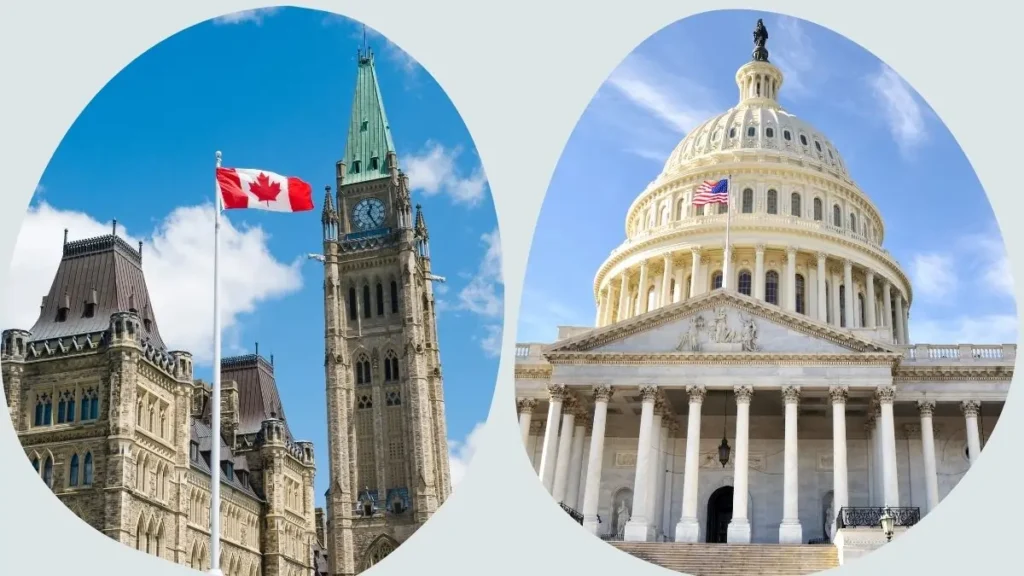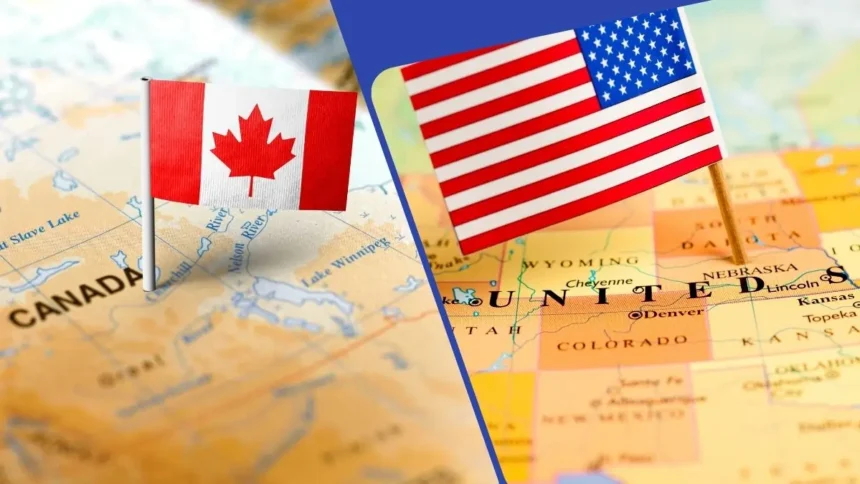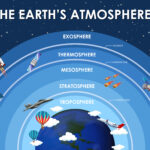Introduction
Have you ever wondered why Canadians are known for their politeness while Americans are celebrated for their individualism? The cultural differences between Canada and the USA are fascinating and profound.
Exploring the cultural differences between Canada and the USA reveals a rich tapestry of unique traditions, values, and social norms that shape these neighboring countries. From the influence of Indigenous people and the impact of globalization to regional characteristics shaped by geography, the cultural differences between Canada and the USA provide deep insights into their distinct national identities. Understanding these differences fosters mutual respect and enhances our appreciation for the diversity within North America, regional variations, and social practices that define the cultural landscapes of these two nations.
Have you ever wondered why Canadians are known for their politeness while Americans are celebrated for their individualism? The cultural differences between Canada and the USA are fascinating and profound.
Read also: Storms in the Winters of the USA: Monumental Challenges of Winter’s Might
The Roots of Cultural Differences between Canada and the USA
Despite their shared North American continent and intertwined histories, the United States and Canada are built upon distinct historical and societal foundations. These differences in origins and evolving national identities have led to unique cultures, values, and political systems.
Founding Principles
The United States was forged in the fires of revolution, a violent break from British rule that ingrained a fierce sense of independence and individual liberty into its national identity. Canada, conversely, emerged through a more gradual and peaceful process of separation from Britain, fostering a sense of collective responsibility and a stronger connection to its colonial heritage.
These differing origins are reflected in the distinct values of individualism and collectivism that permeate each nation’s culture. American individualism champions self-reliance and personal achievement, while Canadian collectivism emphasizes social cohesion and community well-being. These values continue to shape both countries’ political discourse, social policies, and everyday life.
Political and Social Structures
The US operates under a presidential system with a clear separation of powers, while Canada has a parliamentary system with more intertwined executive and legislative branches.

This structural difference influences the decision-making process and the role of political parties. Additionally, Canada’s social safety net is more comprehensive than that of the US, reflecting a greater emphasis on collective well-being and social responsibility.
Impact of British Tradition on Canadian Culture
The British tradition has influenced Canadian Culture, specifically in governance, law, language, and education. Canada’s parliamentary democracy was constructed after the British system, which reflected the constitutional principles and other responsibilities of the government.
The common laws of English include the legal systems in most provinces. All the cultural features, including literature and sports, involve hockey, and holidays showcase British heritage. Social norms, manners, and other traditions, such as monarchy, also endured British traditions’ impact on Canadian culture.
Read also: Canadian Shield: Rugged Beauty and Unexpected Riches Within
Regional Cultural Differences: Multiculturalism vs Melting Pot
What is Multiculturalism?
Multiculturalism can be defined as the culture, race, and ethics of minority groups that can receive special acknowledgment of their differences from a dominant political culture. Multiculturalism is seen as a threat to “liberal democracy.”
Canada’s Official Policy of Multiculturalism
The multicultural policy allows citizens to practice their religions and safeguard their identities without fear of official persecution. Canadians are more likely to accept different cultures without fear. The policy thus demonstrated mutual respect among ethnicities and acceptance of one’s benefits.
American Ideal of Melting Pot
The USA is sometimes considered a “melting pot” where diverse cultures and ethnicities come together, forming the rich fabric of the nation. Despite the progress in acquiring this ideal, three recent papers from researchers at the Dornsife School of Public Health discuss inequality and upcoming threats.
The impact of these different models on identity formation is significant. In Canada, individuals often identify with multiple cultural groups, creating a sense of belonging to their ethnic community and the broader Canadian nation. In the United States, the emphasis on assimilation often encourages individuals to prioritize their American identity, potentially leading to a loss of connection with their cultural heritage.
Social and Cultural Practices
Social customs and etiquette in Canada and the USA
In both Canada and the USA, social customs and etiquette reflect the values of politeness and respect. In Canada, people often apologize and use the words “please” and “thank you,” reflecting their politeness and consideration.
The citizens of Canada value punctuality and proper handshakes while meeting others and talking about the USA. The meetings are very casual, with people saying “Hi” and “Hello.” Americans take care of individualism and personal space—Canadians and Americans like formality and respect to a certain level.
Additionally, holidays and traditions like Thanksgiving are celebrated on different dates, highlighting unique cultural practices in each country.
Communication Styles
One of the most striking cultural differences between Canada and the USA is evident in communication styles. Canadians are often known for politeness and indirect communication, with the infamous “sorry” used generously even for minor inconveniences. This reflects a cultural emphasis on consensus and maintaining harmonious relationships.
In contrast, Americans value directness and assertiveness, prioritizing individual expression even if it leads to disagreement.
Attitudes Toward Work and Leisure
The cultural differences between Canada and the USA also extend to attitudes towards work and leisure. Canadians generally prioritize work-life balance, with a greater emphasis on personal time and leisure activities. This is evident in the legally mandated vacation time and a more relaxed approach to work hours.

Conversely, the US is often associated with a “hustle culture,” where long hours and work dedication are success markers. This difference is also reflected in the number of guaranteed holidays, with Canada offering more statutory holidays than the US. These contrasting views on work and leisure reveal fundamental differences in how each culture defines a “successful” life and the role of work within it.
Humor and Pop Culture Divergences
Pop culture in Canada and the USA is highly rich and influential. Artists like Drake and The Weekend have significantly contributed to Canada’s music; the TV show Schitt’s Creek also represents Canada’s humorous culture. The creativity of Canadian literature has gained international recognition.
The USA is recognized for its Hollywood culture of movies, TV shows, and music. Hollywood’s influence can be seen in its narrative framework, logical explorations, and even strategies for marketing independent films.
Humor styles often reflect broader cultural values. Canadian humor tends towards self-deprecation and irony, while American humor can be bolder and more brash. These differences extend to pop culture preferences, with variations in popular TV shows, music genres, and even favorite sports.
Understanding these cultural differences between Canada and the USA is essential for building meaningful connections and navigating cross-border interactions smoothly. Whether you’re a traveler, expat, or simply curious about your neighbors, appreciating the nuances of everyday life in each country enriches the experience of exploring North American culture.
Read also: Top 10 Tallest Mountains of North America: Don’t Miss These Gigantic Peaks
Read also: 10 Heartbreaking Stories of Endangered Species in California
Differences in Cuisine and Food Habit
Dining etiquette is more formal in Canada than in the USA. Canadians prefer traditional cuisine and recipes and are likelier to use local ingredients.
In the USA, customizing meals and taking away leftovers are very common. The cuisine of the USA appreciates worldwide recipes and popular food items from different countries, from infamous burgers to unique fusion dishes.
Diversity in Sports
The cultural differences between Canada and the USA are evident even in sports preferences. While both nations are passionate about athletic competition, their sporting preferences, traditions, and values reveal intriguing contrasts.
The “Big Four” sports—football, baseball, basketball, and hockey—dominate the cultural landscape in the US. The US’s focus on the “Big Four” aligns with its emphasis on individual achievement and commercial success.
Canada’s sporting scene is more diverse, with significant interest in hockey, lacrosse (the national summer sport), Canadian football, soccer, and curling. This diversity reflects Canada’s multiculturalism and the influence of both British and Indigenous traditions.

Canadians proudly cheer on their hockey teams while Americans rally behind football. For Canadians, hockey is more than just a game – it’s an integral part of the cultural fabric, symbolizing resilience, teamwork, and national pride.
In contrast, American football embodies values of competition, strength, and entertainment, mirroring the cultural differences between Canada and the USA in their leisure and national identity approaches.
Language and Identity
Language is pivotal in shaping national identity, regional pride, and even international relations when exploring the cultural differences between Canada and the USA. While both nations predominantly speak English, the nuances in linguistic diversity and expressions of patriotism highlight unique aspects of their respective cultures.
Linguistic Diversity
Canada boasts a unique linguistic landscape, with official bilingualism (English and French) enshrined in its constitution. This coexistence challenges maintaining both languages, especially in regions like Quebec, where French dominates.
In contrast, while linguistically diverse with various immigrant languages, the USA primarily functions in English, with regional accents and dialects adding flavor to the national conversation.
Regarding how words are written, the Canadian spelling of the English language is linked with the British and American rules, but British spelling influences other writing styles. For instance, in contrast, Americans and Canadians tend to spell more words while utilizing the words “ou” different than “o.”
For example, “humor,” “favorite,” “favor,” “behavior,” color, and so on. In addition, in British English, Canadians utilize suffixes to a word while using double consonants rather than singular ones.
Cultural Identity and Patriotism
The cultural differences between Canada and the USA are strikingly evident in their expressions of national identity and patriotism. Canadian identity is often described as complex and evolving, shaped by a multicultural mosaic and a historical relationship with Britain and the USA. It’s a nation comfortable with self-deprecation and humility, often defining itself in contrast to its southern neighbor.
In contrast, American exceptionalism, the belief in the USA as a unique and superior nation, is a cornerstone of American identity. This sense of exceptionalism fuels a robust patriotism often expressed through overt displays of national pride.
Historical events have played a significant role in shaping these identities. For Canada, the War of 1812 solidified a distinct identity separate from the US, while for the US, the American Revolution and subsequent westward expansion fueled a narrative of self-reliance and manifest destiny. Cultural exchanges, like the cross-border flow of music and media, have also influenced and sometimes blurred the lines between these two distinct national identities.
Impact of Globalization on North America
Globalization has influenced Canada and the USA, adding cultural differences while keeping traditions challenging. In Canada, globalization has started multiculturalism. Global media also reflects international music, Films, and various ideas to Canadians.
The influx of immigrants from Asia, Africa, Latin America, and Europe created a huge Canadian society that added a variety of languages, Cuisines, and other cultural practices. These variations include diversity in Canadian cities, including Toronto and Vancouver, due to the different cultures in the neighborhoods.
Globalization has impacted cultural diversity in the USA in multiple ways, with the greatest influence coming from the Middle Eastern regions, including Hispanic, Asian, and African cultures. American pop culture and music, fashion, and music have become a global favorite.
In addition, globalization has some challenges along with positive changes, including balancing and keeping national identities and traditions intact and embracing global cultures and local traditions. Globalization also includes homogenization, which states that dominant cultures suppress local traditions.
Read also: Tornadoes in the United States: Is There a Hidden Reason the US Gets Hit the Most?
Conclusion
The cultural differences between Canada and the USA are profound and multifaceted, reflecting their unique histories, geographic diversity, and social dynamics. From the influence of Indigenous people to the impact of globalization, these cultural variations are evident in everyday life, including language, holidays, and regional practices.
Understanding the cultural differences between Canada and the USA allows us to appreciate the rich tapestry of North American culture and the factors that shape it. These differences highlight the diversity within each country and underscore the importance of cultural awareness and respect.
Recognizing and valuing these distinctions can foster a more integrated and harmonious North American community. Exploring the cultural differences between Canada and the USA ultimately enriches our knowledge and enhances our appreciation of the intricate cultural landscapes of these neighboring nations.
FAQs
1. What are the crucial cultural differences between Canada and the USA?
Canada and the USA share many similarities but have distinct cultural differences. Canadians tend to emphasize politeness, multiculturalism, and social welfare. In contrast, Americans often focus on individualism, patriotism, and a more competitive spirit. Additionally, Canada strongly emphasizes bilingualism, particularly with French as an official language alongside English.
2. How do Canada and the USA differ in their approach to multiculturalism?
Canada adopts a policy of official multiculturalism, celebrating and encouraging cultural diversity. This is reflected in its policies and societal attitudes supporting various cultural groups’ integration. In the USA, while diversity is also celebrated, the emphasis is more on the “melting pot” concept, where different cultures blend to form a unified national identity, with a stronger focus on assimilation.
3. What are the differences in the education systems of Canada and the USA?
The education systems in Canada and the USA have some notable differences. In Canada, education is provincially controlled, leading to variations in curriculum and policies across the country—Canada generally has a robust public education system focusing on inclusivity.
In the USA, education is locally controlled, with significant variation in quality and resources between districts. Higher education in the USA is often more expensive, with a greater emphasis on private institutions.
4. How do the healthcare systems in Canada and the USA compare?
Canada’s publicly invested healthcare system, Medicare, provides universal coverage for all residents. This government-funded system ensures that healthcare is accessible to everyone. In contrast, the USA relies heavily on a mixed private and public healthcare system, with many citizens obtaining health insurance through employers or government programs like Medicaid and Medicare. The US system often leads to higher out-of-pocket costs for patients.
5. How do Canadians and Americans celebrate their national holidays differently?
Canada and the USA have different national holidays that reflect their unique histories and cultural identities. Canada Day, celebrated on July 1st, marks the anniversary of the confederation, while Independence Day, celebrated on July 4th, is the USA’s celebration of its declaration of independence. Canadian Thanksgiving is observed in October, focusing on the harvest, whereas American Thanksgiving is celebrated in November with a greater emphasis on historical pilgrim traditions.
6. What role do Indigenous cultures play in Canada and the USA?
Indigenous cultures are integral to the heritage of both Canada and the USA. It has a strong understanding of recognizing and preserving Indigenous cultures, languages, and rights, supported by policies and national efforts toward reconciliation.
The USA also values its Indigenous cultures, but the approach can vary significantly by state and tribe, and there are ongoing challenges in preserving languages and traditions. Both countries must address historical injustices and promote the well-being of Indigenous communities.
References
- Pauls, E. P. (2024). Native American. In Encyclopedia Britannica.
- Indigenous cultures in Canada: An intro for newcomers. (2021, August 6). Arrive; Arrive Canada. https://arrivein.com/daily-life-in-canada/a-newcomers-introduction-to-indigenous-cultures-in-canada/
- Effects of economic globalization. (n.d.). Nationalgeographic.org. Retrieved May 30, 2024, from https://education.nationalgeographic.org/resource/effects-economic-globalization/
- Singh, N. (2017, April 7). Arctic community: The cultures and peoples of the far north. Quark Expeditions. https://www.quarkexpeditions.com/blog/arctic-community-the-cultures-and-peoples-of-the-far-north
- Wikipedia contributors. (2024, May 30). Canadian Prairies. Wikipedia, The Free Encyclopedia. https://en.wikipedia.org/w/index.php?title=Canadian_Prairies&oldid=1226365705
- Rocky Mountains – Native Tribes, Wildlife, Geology. (n.d.). In Encyclopedia Britannica.
- General Data Protection Regulation (GDPR). (n.d.). The Discoverer. Retrieved May 30, 2024, from https://www.thediscoverer.com/blog/holidays-only-celebrated-in-the-usa/XvHyVpKgiwAG5ay3
- Hele, K. S. (n.d.). Colonialism in Canada. Thecanadianencyclopedia.Ca. Retrieved June 3, 2024, from https://www.thecanadianencyclopedia.ca/en/article/colonialism-in-canada
- Eagan, J. L. (2024). multiculturalism. In Encyclopedia Britannica.
- Is the United States honoring its ‘melting pot’ identity? (2021, January 22). Drexel University Dornsife School of Public Health. https://drexel.edu/dornsife/news/latest-news/2021/January/is-the-united-states-honoring-its-melting-pot-identity/
- Kendra Cherry, M. (2013, December 30). What is a collectivist culture? Verywell Mind. https://www.verywellmind.com/what-are-collectivistic-cultures-2794962
- Canadian English vs. American English – the differences. (2023, September 7). Lighthouse Translations. https://lighthouseonline.com/blog-en/canadian-vs-american-english/





